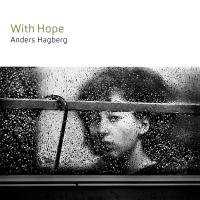Moog died Sunday at his home in Asheville, N.C., according to his company's website. An inoperable brain tumour had been detected in April.
A childhood interest in the theremin, one of the first electronic musical instruments, would led Moog to create a business that tied the name Moog as tightly to synthesizers as the name Les Paul is to electric guitars.
Despite travelling in circles that included jet-setting rockers, he always considered himself a technician.
“I'm an engineer. I see myself as a toolmaker and the musicians are my customers," he said in 2000. “They use the tools."
As a PhD student in engineering physics at Cornell University, Moog (rhymes with vogue) in 1964 developed his first voltage-controlled synthesizer modules with composer Herb Deutsch. By the end of that year, R.A. Moog Co. marketed the first commercial modular synthesizer.
The instrument allowed musicians, first in a studio and later on stage, to generate a range of sounds that could mimic nature or seem otherworldly by flipping a switch, twisting a dial, or sliding a knob. Other synthesizers were already on the market in 1964, but Moog's stood out for being small, light and versatile.
The arrival of the synthesizer came as just as the Beatles and other musicians started seeking ways to fuse psychedelic-drug experiences with their art. The Beatles used a Moog synthesizer on their 1969 album “Abbey Road"; a Moog was used to create an eerie sound on the soundtrack to the 1971 film “A Clockwork Orange."
Keyboardist Walter (later Wendy) Carlos demonstrated the range of Moog's synthesizer by recording the hit album “Switched-On Bach" in 1968 using only the new instrument instead of an orchestra.
“Suddenly, there was a whole group of people in the world looking for a new sound in music, and it picked up very quickly," said Deutsch, the Hofstra University emeritus music professor who helped develop the Moog prototype.
“The Moog came at the right time," he said Monday.
The popularity of the synthesizer and the success of the company named for Moog took off in rock as extended keyboard solos in songs by Manfred Mann, Yes and Pink Floyd became part of the progressive sound of the 1970s.
“The sound defined progressive music as we know it," said Keith Emerson, keyboardist for the rock band Emerson, Lake and Palmer.
Along with rock, synthesizers developed since Moog's breakthrough helped inspire elements of 1970s funk, hip-hop, and techno.
Charles Carlini, a New York City concert promoter, staged Moogfest in May 2004 to mark a half-century since Moog founded his first company while still in college. Emerson, Rick Wakeman of Yes, and Bernie Worrell of Parliament/Funkadelic were among those who played, and a second Moogfest was held a year later.
-- Associated Press
For more information contact All About Jazz.






















